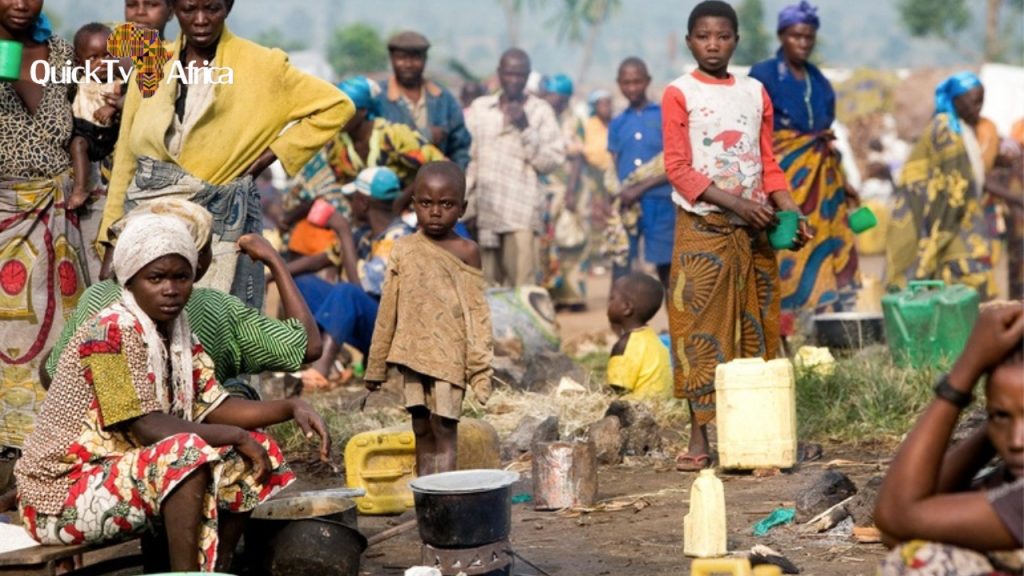130 Million Nigerians in Poverty: Declassified Analysis on the Nation’s Current Struggle
In a revealing report, the National Bureau of Statistics confirmed that 130 million Nigerians, accounting for over 63% of the population, are currently living in poverty. According to the 2024 Multidimensional Poverty Index (MPI), which measures health, living standards, education, security, and employment, these figures highlight deep disparities across Nigeria. Notably, more than half of Nigeria’s children are impacted by poverty, and regional differences are striking; while Ondo State has a poverty rate of 27%, Sokoto State struggles with a staggering 97%.
Persistent Patterns of Poverty
Historically, Nigeria’s battle with poverty is longstanding. Back in 1985, poverty rates exceeded 94%, and despite shifts in government policy, the challenge has remained entrenched. Today, as other countries like Angola, Pakistan, and Vietnam make strides in poverty reduction, Nigeria’s rate remains stubbornly high, indicating systemic issues that have yet to be addressed.
Critical Gaps in Healthcare Caused by Poverty
Healthcare remains one of the MPI’s core metrics, and Nigeria’s healthcare sector reveals persistent underinvestment. Despite trillions of naira purportedly allocated, the system faces severe deficiencies in infrastructure and medical staffing. In 2024, the Ministry of Health received only 0.6% of the national budget, far short of meeting the country’s needs. Currently, there are fewer than 25,000 doctors to serve a population of over 220 million, placing Nigeria’s doctor-to-patient ratio among the lowest globally. In many parts of the country, hospitals experience daily power outages, and reports of women giving birth on roadsides due to inadequate facilities highlight the critical state of the system. These conditions worsened during and after the COVID-19 pandemic, as emergency funds reportedly failed to make a visible difference.
Challenges in Education
Nigeria’s educational sector faces similar struggles, with educators and institutions severely underfunded. University professors currently earn around 800,000 naira per month, equivalent to about $900 due to the exchange rate fluctuations of 2024, which hinders their ability to maintain a decent standard of living. Students bear the consequences of this underfunding, facing overcrowded classes, outdated facilities, and persistent staff strikes, which disrupt their education and compromise Nigeria’s future workforce.
Employment Woes
The MPI has also highlighted unemployment as a crucial area of concern, with official figures showing 34% of Nigerians unable to find work as of 2024. This marks an increase from previous years, with many new graduates entering a job market that offers few opportunities. As poverty and unemployment rates climb, the promised job creation from election campaigns remains largely unmet.
Security Challenges and Stability
The final component of Nigeria’s MPI score, security, is a critical issue. Although there has been reported progress in countering groups like Boko Haram, other violent groups continue to pose threats across the country, adding layers to the nation’s poverty crisis. Lasting stability and security for Nigerian citizens require a dedicated strategy, yet these challenges persist.
Election Integrity and Transparency
With the upcoming election cycle, Nigerians are demanding transparency and accountability from the Independent National Electoral Commission (INEC). Concerns regarding voter registration, particularly around underage voting, are widespread. There is also mounting pressure to disqualify candidates with unresolved allegations or questionable records, as many believe the upcoming elections will either address or worsen the poverty crisis.
At this pivotal juncture, Nigerians are called to action, with a renewed emphasis on holding leaders accountable and casting votes with the nation’s future in mind. The choices made in the next election will determine whether Nigeria can confront its enduring challenges and set a path toward a better future for all.

